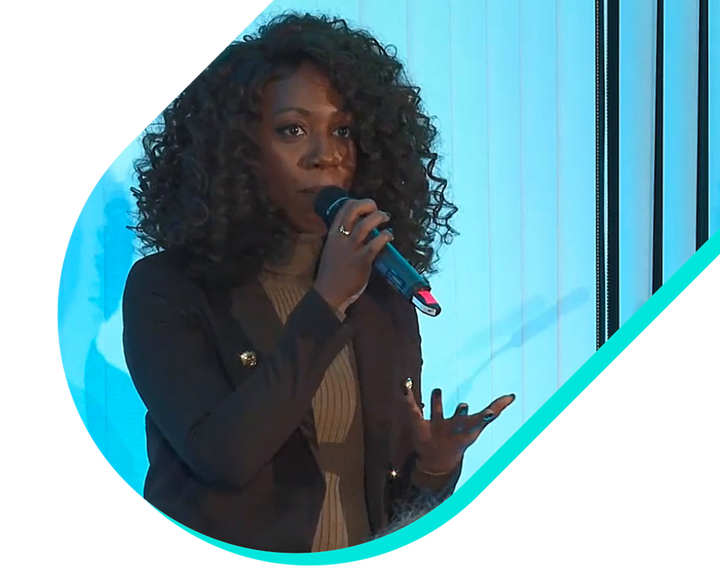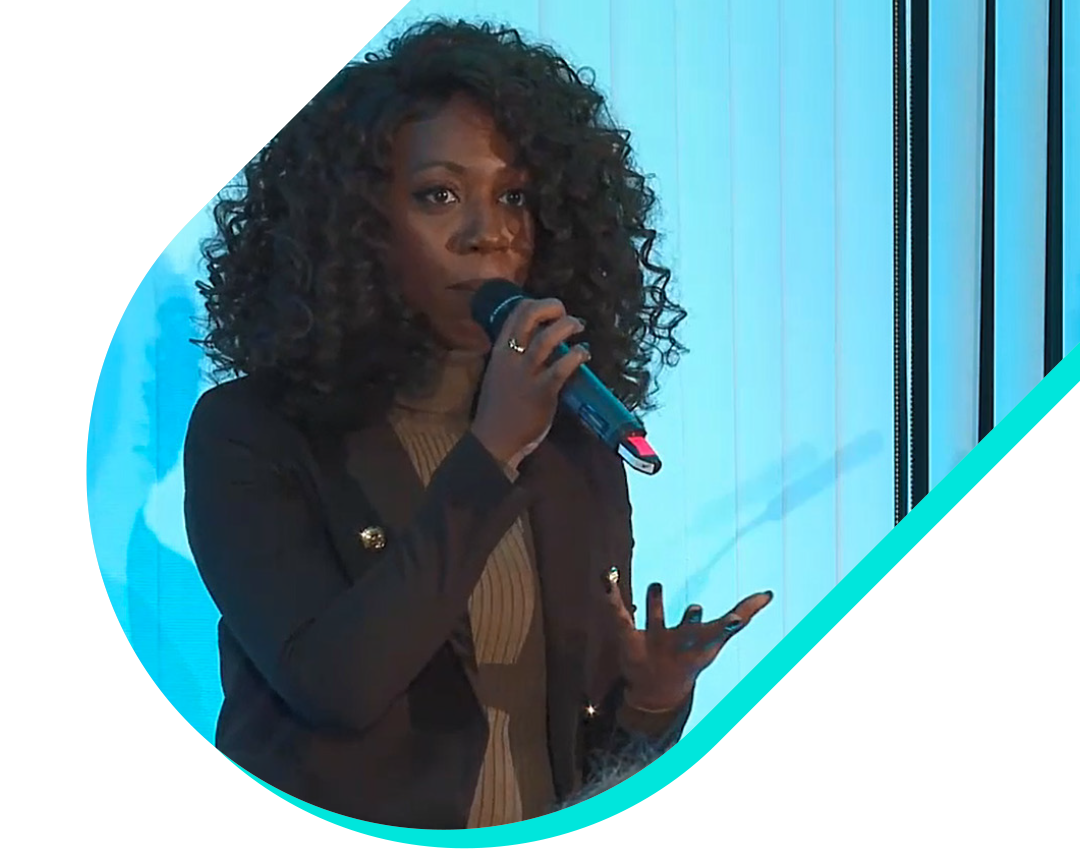By Jo Wisdom, Internal Accounts Executive – Broker Finance, Siemens Financial Services UK
Drawing on her own journey at Siemens Financial Services (SFS), Jo Wisdom examines the challenges facing organisations in their DE&I efforts and the actions they can take
to drive change now.
It’s well known that high levels of diversity and inclusion in the workplace improve team wellbeing and foster greater levels of innovation and productivity.1 So why are so many businesses still struggling to understand the depth of the challenge and action meaningful change in their institutions?
This is one of the questions that drives our own thinking at Siemens and Siemens Financial Services (SFS). We know from experience that this isn’t easy, and our own efforts are (and may always be) a work-in-progress but we are dedicated to making lasting change in our company, our industry and beyond.
About the event
Race to Inclusivity was held online and live in Manchester on 23rd November.
The event – sponsored by Siemens Financial Services – brought together local businesses and Siemens colleagues to discuss approaches to D&I and showcase current efforts to build an inclusive workplace and set a marker within the industry.
Diversity
When it comes to understanding diversity and encouraging employees of all backgrounds to thrive, there are often core misunderstandings. As Derek Redmond, elite athlete and motivational speaker explains,“The various differences that many of us think of when we hear diversity actually only constitute one part of a much more complex picture.”
Acknowledging the many facets of what makes us different can help us to make sure everyone is treated the same. Redmond relates this back to the running track, “You have to assume that everyone is at your level if not higher, and then determine that based solely on performance. It won’t help you to prejudge their ability, the outcome of the race speaks for itself.”
The same logic applies to the corporate world. It is up to us to let employees demonstrate their potential and skills through performance. While knowing this doesn’t solve the problem, it’s a good starting point for holding ourselves to account with our judgements.
The next step is having honest conversations.
Inclusion
Inclusion doesn’t happen overnight. There’s a long road of learning and unlearning that we each have to follow, and although some of this development we can do alone, there’s so much more to be gained from engaging in discussions with each other and questioning our behaviours. Inclusion isn’t just a box to be ticked, nor is it something that can be solved by one mandatory seminar for employees. It is an ongoing process that everyone needs to understand and work towards implementing every day. Race can be a taboo topic but when we lean into these discussions it’s rewarding and can make a difference to the entire organisation.
At SFS, like many businesses, we’ve undertaken unconscious bias training but recognise that this is just a first step. It’s not enough to just run a quick session on inclusivity and then forget about it. Instead, we sought to build upon this with Conscious Inclusion training. We’ve had many versions of this over the years but our latest programme – designed and delivered by STEPS, learning & behaviour change experts – has been incredibly helpful in creating a psychologically safe environment to highlight and interrogate examples of bias and discrimination. Steps create bespoke learning events and resources, using drama scenarios to hold up a mirror to organisational culture. Seeing situations play out in a fictional organisation not only helps us to identify moments and examples where things have gone wrong, they provide the space and time to see how inclusion/exclusion operates and the types of discussions that can help to effectively manage and change this.
Gary Bates,
Director
at Steps
Jo Harris,
Sales Director
at SFS UK
Gary Bates, Director at Steps, explains‘’The programme and scenarios were developed via research and discussion with colleagues across Siemens, so the situations are recognisable and characters reflect our co-workers, bosses and of course ourselves. The critical distance afforded by use of drama enables people to learn and discuss without judgement, to own the changes that we all need to make, and to then apply what we’ve learnt to real situations within our organisation.”
Jo Harris, Sales Director at SFS UK, explains,“The training has helped people understand that using certain language, phrases and approaches, can play a part in combatting bias in our day-to-day interactions. It has also helped people learn to call out bias with confidence, and to be receptive of being called out without being defensive, but with the awareness that through the training, adjustments can be made and we can move forward.”
Challenges and Actions
Judge on performance:
we all carry a range of differences and biases within ourselves but these aren’t a fair basis to assess someone on. We must continue to provide opportunities for growth for employees from all backgrounds and at all levels. This is where they can showcase their talent and if we don’t supply these chances, who will?
Create space for honest conversations:
discussion is where learning and development happen. While approaching topics such as race can be initially uncomfortable, the rewards for your workforce are substantial. Employees can bring their whole selves to work, making them happier and more productive.
Understand and practice allyship:
allyship is about taking charge of your own learning and actively supporting your colleagues to create a more inclusive workplace. Share growth opportunities, be a mentor, challenge system inequality. Using your voice to support what’s right isn’t taking up space and it should not solely be the responsibility of minority communities to advocate for themselves. Speak up and show your support, especially when it’s not easy because that’s often when it matters most.
Our journey at SFS
At SFS our people are our most important asset. Currently, 89% of our employees feel they can be themselves at work – our aim is to get that to 100%. What matters to them matters to us.
This is quite the contrast to the broader corporate world where 1 in 4 people do not feel valued at work (and those who do are frequently those in leadership positions).2
That’s why I’d like to share some of the amazing initiatives we’re running to support the promotion and development of colleagues from traditionally underserved backgrounds.
“As an Industry we do not take the topic of Equity Diversity and Inclusion seriously enough. If we are to attract the best talent, provide the environment for it to flourish and make better decisions because of diverse input, then we are compelled to act.
We cannot sit idly by and only respond to Regulatory requirements. Meaningful change – that can truly impact our industry and those in it – requires all our efforts alongside urgent action, and the time for this is long overdue.“
Julian Hobbs, CEO, Commercial Finance, Siemens Financial Services UK
Accelerace
Accelerace is a career accelerator programme carefully developed to respond to the challenges that our employees of colour face in progressing their careers. The programme focuses on the strengths and skills needed to help these employees thrive and make our business stronger.
As one of the programme founders Ravinder Shawe – Senior Legal Counsel, Siemens Digital Industries – explains,“When you improve the representation of minorities, you improve pipelines into management roles as well as career opportunities for each individual. Our goal is to have a well-defined and well-supported roadmap that creates a springboard for those from racial minorities and ultimately contributes to greater diversity of senior leadership.”
The training has now welcomed its first cohort for a full programme of learning and development tailored by our inspiring DE&I advocates to best support colleagues on their journey to the top.
BEAUT – Black Equality Allies United Together
BEAUT, or Black Equality Allies United Together, is the first established community within the Race network at SFS. BEAUT’s ambition is to build a culture of inclusion by addressing unconscious bias, aided by allyships advocating for equal opportunities within the workplace. The community aims to do this by raising awareness, encouraging accountability for self-education and by celebrating the diverse communities within Siemens.
One of its founders Sensi Williams, Project Specialist at SFS, states“Feeling comfortable talking about race within the workplace felt like a huge weight off my shoulders, as I have never worked for a company where I felt confident to do so. In helping to break down the uncomfortable stigma that comes with not wanting to broach difficult subjects, BEAUT have helped spark open conversations within the business about Race, which in turn has helped others from minority racial backgrounds to feel comfortable to bring their whole selves to work.” Since forming in 2020, BEAUT has grown significantly and continues to run regular events for the benefit of everyone at SFS, to educate, celebrate and share experiences from the Black community.
Another founder, Aidan Lewis, Operations Executive at SFS, shares“Being a part of BEAUT has allowed me to feel like I can celebrate and be proud of my culture and all cultures, and has helped me feel comfortable being myself within the workplace.”
Conclusion
It is my hope that our efforts and experience will help other companies in our industry to be much more proactive in their DE&I engagement. The process has given colleagues across the company a chance to come together, drop the hierarchy and talk to each other about how they feel and what we can do better. We’ve used these conversations to make meaningful change in our business and show we care. It has made for a happier workplace and a stronger workforce.
So, engage with your staff and feel free to engage with us. This journey is about supporting each other to improve and not just paying lip service to this topic. In the great words of Yoda “do or do not, there is no try.”
Key takeaways
- We must encourage conversations. Be creative, be transparent and talk to each other.
- Get management on board and not just vocally, they need to show up and show their dedication to change.
- DE&I isn’t just one and done. Put the emphasis on continuing what we’re doing. Don’t just think it’s done, it’s not just a box to tick it’s a continuous journey. Keep it fresh and keep people involved.
- Ultimately everyone is accountable to ensure inclusivity in a company and keep momentum going.
1 https://www.ilo.org/global/about-the-ilo/newsroom/news/WCMS_841085/lang--en/index.htm
2 https://www.ilo.org/global/about-the-ilo/newsroom/news/WCMS_841085/lang--en/index.htm

